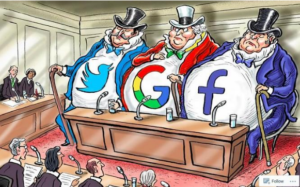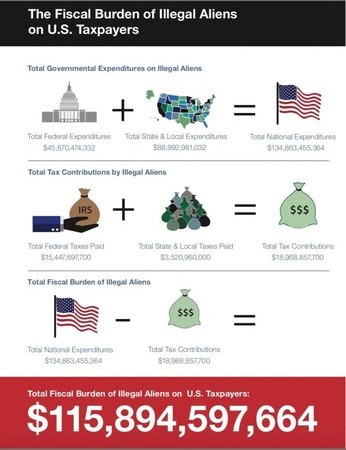Submitted by Tyler Durden
Until recently, ad blocking – the biggest threat to every Silicon Valley ad-driven business model – was largely a peripheral concern stemming from such companies as AdBlock, which was recently snapped up by a “mystery buyer” while ad-driven quasi-monopolies such as Google pay comparable adblockers to allow their ads through. That however is about to change because as the WSJ reports two Chinese-owned European wireless carriers are set to unleash online advertising blocking on their networks, which as the WSJ accurately summarizes, “threatens Silicon Valley’s prevailing business model.”
However, instead of relying on potentially compromised third parties to block bandwidth-hogging ads, the networks will implement the technology within the actual pipe at the network-level: the operators, Three UK and Three Italia, are working with Israeli company Shine Technologies and plan eventually to roll out the platform to other wireless providers in their group.
According to the WSJ, the two carriers are owned by CK Hutchison Holdings Ltd., which is controlled by Asian billionaire Li Ka-shing and also owns wireless networks in Ireland, Austria, Sweden, Denmark, Hong Kong and Indonesia. Shine is backed by Mr. Li’s Horizons Ventures tech fund.
“We don’t believe customers should have to pay for data usage driven by mobile ads,” Tom Malleschitz, chief marketing officer of Three UK, said in a statement. “Irrelevant and excessive mobile ads annoy customers and affect their overall network experience.”
Shine’s platform prevents online-ad networks such as those operated by Alphabet Inc. from delivering display and video ads to browsers or apps. Unlike ad-blocking apps downloaded by customers to their devices, it works at the network level.
The CK Hutchison-owned carriers are not the first to take this aggressive step: last year, Jamaica-based wireless operator Digicel Group began working with Shine as the first operator to implement the technology so it could block advertising on its networks in the Caribbean and South Pacific. The carrier criticized online advertising companies, including goliaths like Alphabet and Facebook Inc., for not contributing to the costs of building the networks that deliver their ads.
More importantly, these are not some token networks: Digicel has about 13 million subscribers across the Caribbean, Central America and the South Pacific. Hutchison had more than 30 million customers across Europe as of mid-2015.
A comparable story from Bloomberg lays out the rising confrontation between carriers and ad-providers in more detail:
As Zuckerberg prepares to return to Barcelona for this year’s MWC on Feb. 22, phone executives say his company looks more like a competitor than a partner. Last year, WhatsApp introduced free voice calls—something Facebook already offered—and both brands have messaging apps. These so-called over-the-top services cut into mobile carriers’ voice and texting revenue because they’re offered over the Internet. Some phone companies say Facebook and its ilk are freeloaders that rely on carriers’ network infrastructure without spending any money to support it. “WhatsApp is competing with us, not only with messaging but with voice, too,” Telefónica Chief Operating Officer José María Álvarez-Pallete said in August at a telecommunications industry event in the Spanish coastal city of Santander. “The premise should be, same services, same rules.”
Think “net neutrality” but for wireless carriers, something Netflix has had significant issues with in recent months. And just like in the case of Netflix, where content providers and cable companies were slow to respond, so ad networks did not realize that they are handing out bandwidth to those who are being directly funded by bandwidth-hogging ads, in the process threatening the survival of the networks themselves. Having finally figured out the dynamic, the carriers are angry.
First, in Latin America:
Telefónica has huge operations in Latin America. And it’s in emerging markets where the tension with the messaging apps is most evident. Carriers there are more dependent on revenue from voice and text (in developed countries, data is the bigger moneymaker). A Brazilian judge in December ordered WhatsApp to suspend service in the country following a complaint from a telecommunications lobbying group, though the decision was soon overruled by another court.
Then in Africa:
In South Africa, carriers MTN Group and Vodacom Group contend that services such as WhatsApp, Skype, Google Hangouts, and the Viber messaging app cost the country billions of rand in tax revenue and compromise security because their encryption makes it easier for criminals to avoid government surveillance. South Africa’s telecom regulator has begun an investigation into the impact of over-the-top services, and Nigeria is considering regulating them. “Technology has outpaced current consumer legislation in many countries,” says Lisa Felton, who oversees regulatory issues for Vodafone, the controlling shareholder of Vodacom.
And soon everywhere else?
To be sure, the biggest “threat” is the FaceBook-owned WhatsApp, which be definition makes Mark Zuckerberg the number one enemy of the established industry:
WhatsApp doesn’t provide data on voice calls, but it claims 1 billion users, roughly double the number it had when Facebook bought the company. And Skype says it carries in excess of 2 billion minutes of calls per day. In Eastern Europe, where such apps are growing in popularity for national and international calls, mobile carriers’ voice revenue has dropped by a third over the past five years, a decline that hasn’t been fully offset by rising data usage, according to Bloomberg Intelligence analyst Erhan Gurses. Facebook declined to comment.
One suggestion is a war of attrition, where carriers lower fees to compete with WhatsApp; the problem is that for many WhatsApp remains free and funded by advertising – the same advertising which uses carrier bandwidth to be shown to consumers.
In the long run, say some industry analysts, WhatsApp and other alternatives shouldn’t be seen as a threat to the voice service of phone companies. The typically superior sound quality of the voice calls in the apps uses lots of data. “If carriers price their data offerings correctly, it could drive up revenues,” says John Delaney, an analyst at researcher IDC. And when people graduate to video apps like Skype, data consumption grows exponentially. Says Delaney, “What carriers resent is investing heavily and having others piggyback on their investments.”
For many, however, this is not an option, and instead they are rolling out the nuclear option: banning the very technology which makes companies like FaceBook and Microsoft’s Skype profitable in the first place: online ads.
“This answers any speculation about the possibility of rolling out network-level ad blocking in Europe,” said Roi Carthy, chief marketing officer of Shine, in a statement. “Shine now has boots on the ground.”
The only question is how long until most, if not all other carriers, already threatened by collapsing revenues and rising ad-supported competitors, follow suit and ban ads, that lifeblood of virtually every Silicon Valley revenue model, including 2 of the 5 biggest largest by market cap pure-play ad revenue-driven companies in the world.



